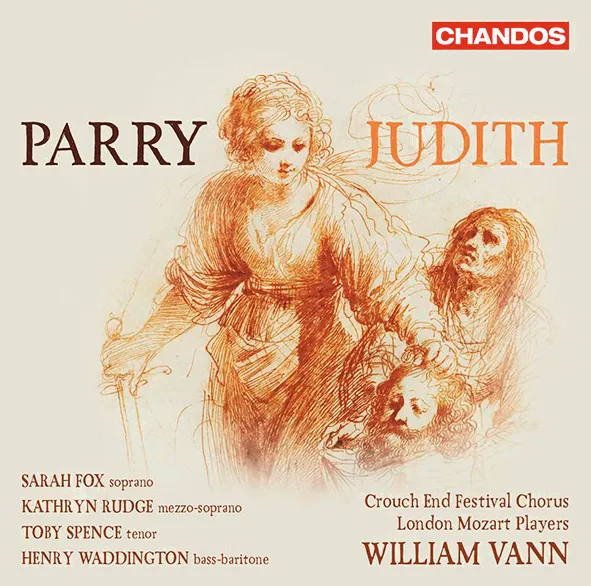
Parry Judith Sarah Fox (soprano), Kathryn Rudge (mezzo-soprano), Toby Spence (tenor), Henry Waddington (bass-baritone); Crouch End Festival Chorus; London Mozart Players/William Vann Chandos CHSA 5268(2) 131.12 mins (2 discs)
Parry’s earliest oratorio, composed in 1888, followed his first masterpiece Blest Pair of Sirens. Boosted by a laudatory article by his colleague Stanford, Judith for a while was widely performed and appeared to confirm Parry’s position as British music’s leading talent. Now, after a century gathering dust, it enjoys a superlative premiere recording by the London Mozart Players, vigorously conducted by William Vann, with committed singing from the Crouch End Festival Chorus and a fine line up of soloists. The enthusiastic pitch of the booklet notes by Parry biographer Jeremy Dibble fully leads one to expect a stirring masterpiece.
Sadly, coming fresh to this work (apart from the hymn tune filleted from the Act I ‘Ballad’, reset as ‘Dear Lord and Father of mankind’), I find myself agreeing with George Bernard Shaw’s lukewarm review. Parry, an agnostic forced by his commission to choose a Biblical subject, composed Judith against the clock and – as he admitted to his diary – without inspiration. Writing his own libretto, Parry set himself a mighty pitfall by opening with a chorus plus High Priest demanding children for sacrifice to Morloch: Parry was no Musorgsky – ‘emasculated Handel and watered Mendelssohn’ was Shaw’s scathingly accurate diagnosis. Given this naively reckless opening, it then seems perverse of Parry to have Judith do her famous assassination ‘off-stage’. Notwithstanding the occasional glint of a good idea that Parry, with some inspiration, might have made more of (and Elgar, who admired Parry, ultimately did), this may only appeal to die-hard Parry fans. Daniel Jaffé